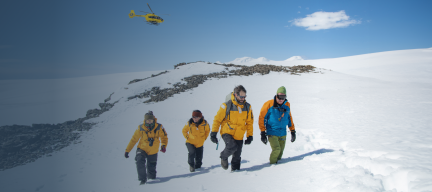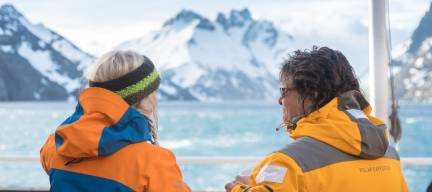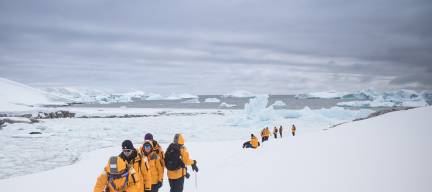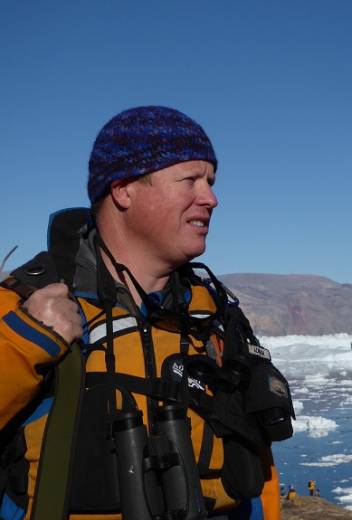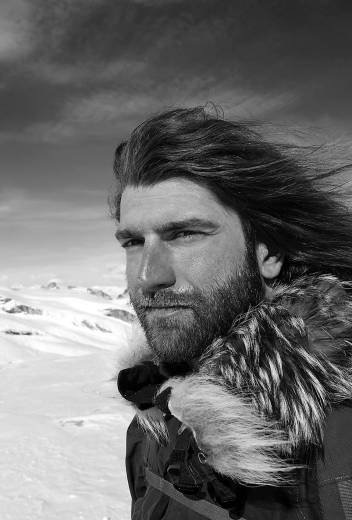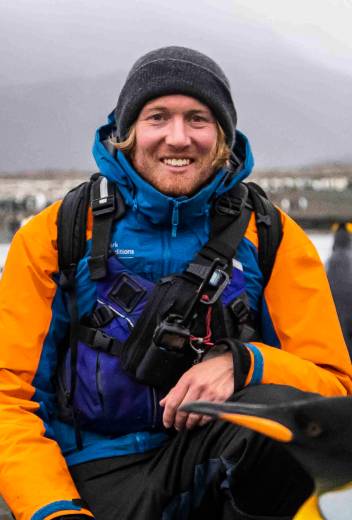Santiago’s first and most unforgettable year in the Polar Regions came in 1987, when he overwintered as a young biologist at Esperanza Station, Antarctic Peninsula. There he worked in a Coastal Ecology project run by the Instituto Antárctico Argentino, which included dive sampling all year round.
Moved by his Antarctic experience, he took a summer break before returning to Esperanza for a second winter. Between 1998 and 2000. he spent another 10 months as a field biologist at the Dallmann Laboratory in Jubany Station (now Carlini Station) on King George Island. It was the first research station in Antarctica operated by more than one nation. The partner countries included Argentina, Germany, and the Netherlands.
His passion for wilderness inspired him to travel through the main natural areas of Argentina and Chile, guiding Natural History and birding trips. He wrote and published eight Natural History handbooks in Spanish. The books were about the Patagonian ecosystems and the Iguazu rainforest.
Santiago’s first season with Quark was 2007 and he has returned every year since. One of the true joys of his life is to help travelers explore the dynamic and changing lives of birds from the Polar Regions. A never-ending process of learning about nature at high latitudes, learning about people, and learning about himself.
Santiago’s hometown is Olivos, a suburb of Buenos Aires, where he lives with his wife, their two children, dog. When Santiago is not working with Quark, he loves to spend his time with his wife, watching their son play rugby.

